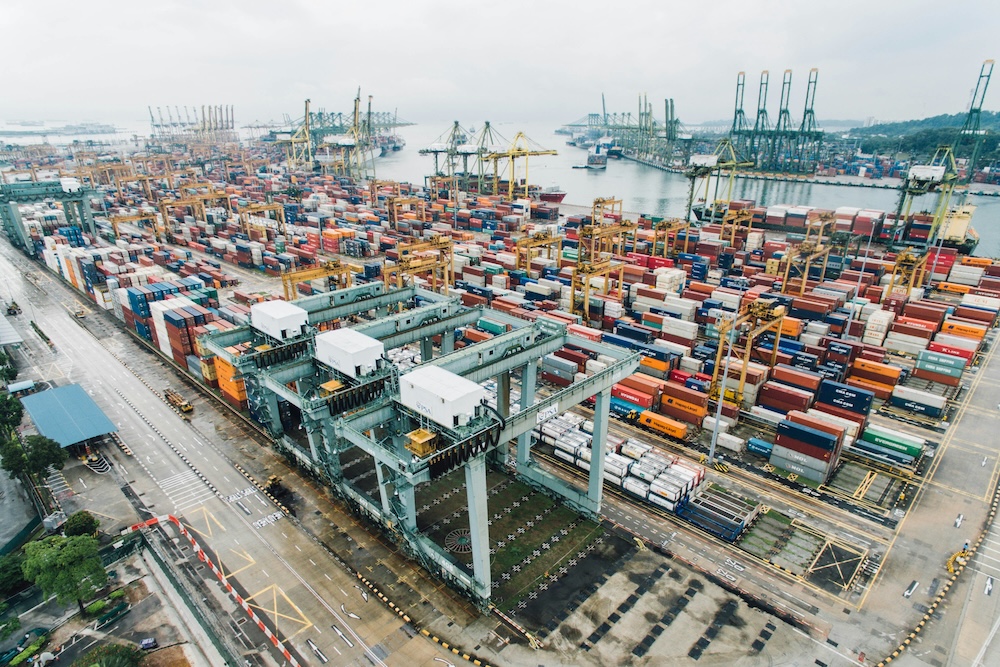On August 9, a container ship explosion rocked Ningbo Port, one of the busiest ports in China. This incident has sent shockwaves through the global shipping industry, particularly for businesses reliant on trans-Pacific trade routes. The explosion not only resulted in significant damage to the vessel involved but also led to widespread port congestion and delays, affecting the movement of goods worldwide.
For businesses where timing is critical to maintaining product quality, the ripple effects of such a disruption can be particularly devastating. As decision-makers and business owners, it’s crucial to understand the implications of this event and how to navigate the challenges it presents.
Exploring the Widespread Effects on Port Operations
Ningbo Port is a critical hub for international trade, handling millions of containers each year. The explosion has severely affecting port operations, leading to the temporary closure of several terminals and causing significant delays in the loading and unloading of cargo.
The immediate consequences of this disruption include:
Severe Congestion
With multiple terminals out of operation, ships are now facing extended wait times to berth. This has led to a backlog of vessels at Ningbo and surrounding ports as they hurry to redirect traffic.
Cargo Delays
Perishable goods, such as fruits and nuts, are particularly vulnerable to these sorts of delays. Prolonged storage times and rerouting efforts can lead to spoilage, resulting in financial losses for businesses.
Increased Costs
The scarcity of available port slots has driven up the costs of shipping as carriers impose congestion surcharges and higher freight rates to offset the delays.
How This Container Ship Explosion Will Affect Global Trade Routes
The explosion at Ningbo Port is not only a localized issue; it has far-reaching implications for global trade routes as well. The port’s strategic location on the eastern coast of China makes it a key gateway for goods entering and leaving the Asia-Pacific region. With this critical junction now compromised, businesses must brace for significant disruptions in their supply chains. Some issues to consider include:
Diversions and Route Changes
One of the most immediate effects of the container ship explosion is the diversion of vessels to alternative ports. While this may seem like a viable immediate solution, it comes with its own set of challenges. Alternative ports may not have the capacity to handle the sudden influx of additional cargo, leading to congestion and delays similar to those seen at Ningbo.
For example, ports such as Shanghai and Qingdao, which are also major shipping hubs, are already reporting increased traffic as ships reroute to avoid Ningbo. This increase in traffic could strain their operations, leading to further delays in the global supply chain.
Impact on Shipping Schedules
The disruption at Ningbo is expected to cause a ripple effect on shipping schedules worldwide. Vessels that are delayed in Asia will arrive late at their subsequent destinations, causing a domino effect that could disrupt shipping schedules for weeks or even months. For businesses that rely on just-in-time delivery models, this could mean significant challenges in meeting customer demands and maintaining inventory levels.
Financial Implications for Businesses
The financial effects of this disruption cannot be overstated. The increased costs of shipping, combined with potential losses from spoiled goods and delayed deliveries, could have a significant impact on the bottom line of businesses. For those in the fruits and nuts industries, where margins can be tight, these additional costs could be particularly burdensome.
Planning for the Future to Mitigate Long-Term Effects
As with all supply chain disruptions, this one may be significant, but it certainly doesn’t leave businesses without options. Here are some things we suggest as you move forward with your planning:
Proactive Route Planning
Knowing what’s upcoming is key to success in freight forwarding. Explore alternative shipping options to ensure your goods are rerouted to the most efficient and least congested ports, minimizing delays and reducing the risk of spoilage.
Flexible Shipping Solutions
In times of crisis, flexibility is key. Consider various shipping options that will get your products to market as quickly as possible. Switching from sea to air or choosing less-congested land routes may ultimately be better choices for transportation.
Cost-Management Strategies
Unexpected shipping costs can strain your budget, so it’s important to work with a freight forwarder that offers cost-management solutions to mitigate the financial impact of disruptions. Together, you can realize better rates or find other options.
Plan Ahead to Prepare for Future Disruptions
The Ningbo Port container ship explosion is yet another reminder of how fragile global supply chains are and the need for businesses to be prepared for unexpected disruptions. By partnering with a reliable and experienced freight forwarder like Cyclone Shipping, you can ensure that your business is well-equipped to handle whatever challenges may arise. Contact us to learn how we can help you be prepared for this and future challenges.




